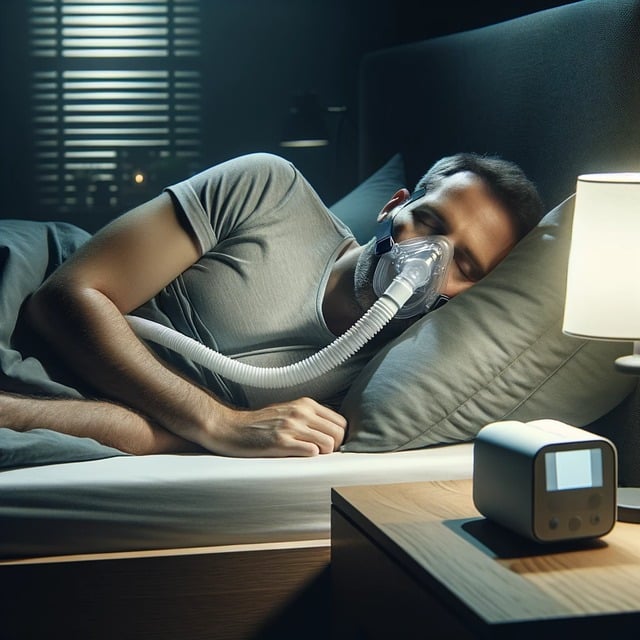
Unmasking the True Cause of Sleep Apnea
Sleep apnea is a common sleep disorder that affects millions of people worldwide. It is characterized by interrupted breathing during sleep, leading to frequent awakening and poor quality of sleep. While this condition may seem harmless, it can have serious consequences on one’s physical and mental health if left untreated. For years, the medical community has attributed sleep apnea to various factors such as obesity, alcohol consumption, and smoking.
However, recent studies have uncovered a deeper root cause of this disorder. Through extensive research and advancements in technology, scientists and physicians have unraveled the true culprit behind sleep apnea. In this article, we will delve into the underlying cause of sleep apnea and explore how understanding this condition’s true origin can lead to more effective treatment options and improve the overall quality of life for those affected. So, let us dive into the fascinating world of sleep apnea and unmask the true cause of this often misunderstood disorder.
Snoring isn’t always harmless.
When it comes to snoring, many people dismiss it as a harmless annoyance or a running joke among family members. However, it’s important to realize that snoring isn’t always benign. In some cases, it can be a sign of a more serious underlying condition known as sleep apnea. Sleep apnea is a sleep disorder that causes interruptions in breathing during sleep, leading to frequent awakenings and a decrease in the quality of rest.
It can have significant implications for one’s health, including increased risk of cardiovascular problems, daytime fatigue, and decreased cognitive function. So, if you or your loved one is a chronic snorer. It’s worth considering the possibility that it may be more than just a noisy habit and seeking medical advice to unmask the true cause of sleep apnea.
Sleep apnea: common but serious.
Sleep apnea is a common but serious condition that affects millions of people worldwide. It occurs when the muscles in the throat relax during sleep, causing the airway to become partially or completely blocked. This disruption in breathing can result in frequent pauses in breathing, known as apneas, and can lead to oxygen deprivation throughout the night. The consequences of untreated sleep apnea can be far-reaching, affecting both physical and mental health. From chronic fatigue and morning headaches to high blood pressure and increased risk of heart disease, sleep apnea poses significant risks. It’s crucial to recognize the signs and symptoms of sleep apnea and seek proper diagnosis and treatment to unmask the true cause and improve overall well-being.
Age, weight, and genetics matter.
Age, weight, and genetics play a significant role in the development and severity of sleep apnea. As we age, the muscles in our throat naturally lose strength and tone, making them more susceptible to collapsing during sleep. Additionally, excess weight can contribute to the narrowing of the airway, making it harder for air to pass through. Genetics also come into play, as certain inherited traits can increase the likelihood of developing sleep apnea.
While we can’t control our age or genetics, maintaining a healthy weight through proper diet and exercise can help reduce the risk and severity of sleep apnea. It’s important to understand these factors and work towards a comprehensive approach to unmasking the true cause of sleep apnea and improving overall sleep quality.
Untreated sleep apnea can lead to complications.
When it comes to sleep apnea, leaving it untreated can lead to a range of complications that can affect your overall health and well-being. One of the most common complications is daytime fatigue and excessive sleepiness. This can affect your ability to concentrate, work, and perform daily tasks. Untreated sleep apnea can also increase the risk of high blood pressure, heart disease, and stroke. It can even contribute to the development or worsening of conditions such as diabetes and obesity. Additionally, untreated sleep apnea can have a negative impact on your mood, leading to irritability, depression, and decreased quality of life. That’s why it’s crucial to address and treat sleep apnea to prevent these complications and improve your overall health.
Talk to your doctor today.
If you’ve been experiencing symptoms of sleep apnea or suspect that you may have this condition. It’s important to take action and seek professional advice. Your doctor is the best person to provide a proper diagnosis and guide you through the necessary treatment options. Don’t hesitate to schedule an appointment and discuss your concerns openly. Remember, by addressing sleep apnea early on, you can potentially avoid the long-term complications and improve your quality of life. Your doctor has the knowledge and expertise to give personalized advice and create a plan that suits your specific needs. So, take the first step and talk to your doctor today.
So, the next time you find yourself feeling fatigued and reaching for that extra cup of coffee. Remember that it may not just be a result of a busy day or a lack of sleep. It could be a sign of an underlying issue like sleep apnea. With proper diagnosis and treatment, you can say goodbye to restless nights and hello to a more energized and well-rested you. So don’t wait any longer, get yourself checked and start sleeping better today!


